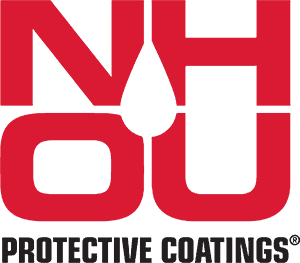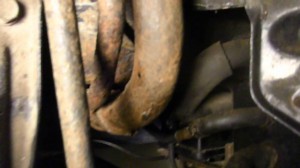 Mitsubishi has recalled 2004 through 2010 Endeavors operating in the salt belt
Mitsubishi has recalled 2004 through 2010 Endeavors operating in the salt belt
Mitsubishi has recalled 2004 through 2010 Endeavors operating in the salt belt because of a corrosion problem. If left uncorrected, the problem could cause gasoline leakage, leading to potentially deadly situations. The cause is a faulty protector shield for the fuel filler pipe. But Mitsubishi’s prescription for solving the problem may surprise you. The Safety Recall Bulletin published on Mistuparts.com summarizes the problem this way:
A corrosion problem due to a faulty protector shield for the fuel filler pipe the culprit.
Affected vehicles operated in Canada and certain states listed below, where road salt is used in cold conditions, may experience fuel filler pipe corrosion. Mud mixed with road salt can become trapped in the fuel filler pipe protector area, potentially causing corrosion of the fuel filler pipe. Over time, corrosion could create a leak in the pipe, leading to fuel leakage during vehicle refueling.
New Hampshire, of course, is one of the states listed. Which Vehicles Are Affected Specifically, the Endeavors affected are those manufactured in the period from January, 2003, to March, 2010, and sold in, shipped to, registered in or residing in Canada, Washington, DC, or any of 38 states. That leaves only 12 states unaffected, and includes a lot of states where winters are short, minimizing salt exposure to vehicles. There are many drivers in the US and Canada trying to convince manufacturers to recall their vehicles for rust-through that occurs in the same spot on hundreds of vehicles of the same model. Manufacturers usually respond with either no recall, or a smaller recall than drivers were hoping for, leaving quite a few owners having to pay for repairs themselves. This broad Mitsubishi Endeavor recall seems unusually aggressive. One possible reason for that is the potential for fire hazard or even explosions.
The Problem It all starts with mud. In the affected Endeavors, the piece of plastic that is supposed to protect the fuel filler pipe sometimes has the opposite effect. While Mitsubishi does not seem to be concerned about granular salt or salt water, it identifies salty mud as a substance that can become lodged behind the protector and rust out the filler pipe. That, of course, could lead to leaking gasoline, and all the dangers that come with it. Mitsubishi’s Solution In the recall bulletin, Mitsubishi describes in exact detail the 12 steps its dealers need to take to fix the problem. It begins with an inspection of the filler pipe, of course, to see if it has rusted out or not, followed by replacement if necessary. Interestingly, there is no mention of replacing or modifying the protector so it will not trap the salty mud. Instead, dealers are to apply a rustproofing treatment to the filler pipe. Even in a place that is known to trap corrosive mud, and even when rust-through could cause highly-flammable fuel leaks, applying a rustproofing treatment is all that’s needed to keep the vehicle safe. Rustproofing in New Hampshire Of course, it’s much safer and easier to give your vehicle a rustproofing treatment before it develops problems. In New Hampshire, proven, high-quality rustproofing is available from NH Oil Undercoating ®. For new or lightly-rusted vehicles, NHOU is recommended. For vehicles that already have a rust problem, Rustoration is the best option. NHOU also offers a wax/oil treatment and a mobile service that goes to the customers’ locations.
Here is the first part of our 2017 workshop series.
What’s covered in this video; Part 1
1) introduction into NH Oil Undercoating® Oil-based Rustproofing
2) surface preparation and inspection
3) the science behind Oil-based Rustproofing ( how it works )
4) equipment and maintenance
Covered in next video Part 2; Application

 Mitsubishi has recalled 2004 through 2010 Endeavors operating in the salt belt
Mitsubishi has recalled 2004 through 2010 Endeavors operating in the salt belt